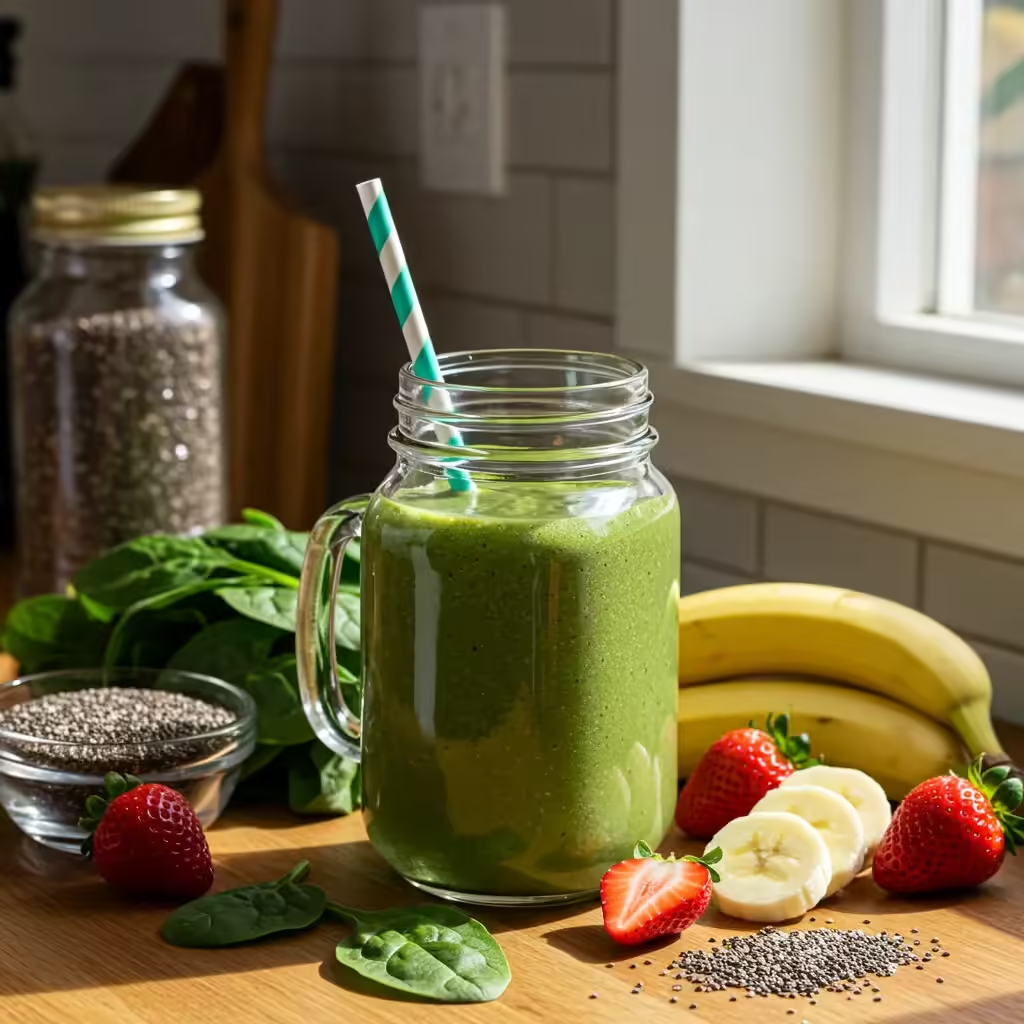Smoothies are a popular choice for health-conscious individuals. They offer a convenient way to enjoy fruits, vegetables, and other nutritious ingredients. But they are always the healthiest option? The answer depends on how they are prepared and consumed. In this article, we’ll explore the benefits and downsides of smoothies and share practical tips for making them a balanced part of your diet.
The Nutritional Power of Smoothies
Smoothies are a simple way to boost your intake of essential nutrients. By blending fresh fruits, leafy greens, and other wholesome additions, they provide vitamins, minerals, and fiber in a quick and easy form. For those who struggle to eat enough fruits and vegetables, smoothies can help fill the gap.
For instance, tropical smoothie recipes often combine natural sweetness with nutritional value. You can find inspiration from these easy tropical smoothie recipes. However, not all smoothie are healthy. Many pre-made options contain extra sugars and calories, which reduce their benefits .For expert tips on preparing nutrient-dense smoothies, check out How to Make a Healthy Smoothie.
Health Benefits of Smoothies

1. A Nutrient Boost
Smoothie offer an easy way to include nutrient-rich ingredients like spinach, kale, and chia seeds in your meals. These superfoods provide antioxidants, vitamins, and fiber, which support overall health.
2. Supporting Weight Management
When used as meal replacements, smoothies can help manage calorie intake. Adding proteins like Greek yogurt or nut butter makes them more filling, reducing the temptation to snack.
3. Promoting Digestion
The natural fiber in fruits and vegetables promotes gut health. Probiotic-rich ingredients, like yogurt or kefir, can further aid digestion and maintain a healthy balance in your digestive system. For ideas, check out this step-by-step smoothie guide.
Potential Drawbacks of Smoothies
While smoothie can be healthy, they have potential downsides if not prepared thoughtfully.
1. High Sugar and Calorie Content
Smoothies made with sweetened ingredients or syrups may contain hidden calories. Even homemade options can become calorie-heavy if portion sizes are too large. Controlling what goes into your smoothie helps avoid this issue.
2. Blood Sugar Spikes
Blends dominated by fruits may cause blood sugar to rise quickly, especially for those with diabetes. Adding low-glycemic vegetables, such as spinach or cucumbers, balances the sugar content and keeps it healthy.
3. Overloading on Certain Nutrients
Consuming large amounts of certain ingredients, like spinach (rich in oxalates), could lead to problems such as kidney stones. Rotating your ingredients and practicing moderation ensures your smoothie stay beneficial.
Tips for Making Healthier Smoothies
To make your smoothie both healthy and delicious, follow these tips:
- Focus on Whole Foods: Use fresh or frozen fruits and vegetables instead of processed ingredients.
- Balance Ingredients: Combine fruits with vegetables, proteins (like Greek yogurt), and healthy fats (like nuts or avocados).
- Mind Your Portions: Avoid adding too many high-calorie extras, such as honey or nut butters.
- Experiment with Recipes: Try these tropical smoothie ideas to explore different combinations.
Who Should Be Careful with Smoothies?
Smoothies aren’t suitable for everyone in every situation. Here’s why:
- Diabetics should monitor their sugar intake by using low-sugar fruits and balancing with vegetables.
- Individuals with IBS or Food Sensitivities may need to avoid certain fruits or other high-FODMAP ingredients that could trigger symptoms.
- Athletes and Active Individuals benefit from protein-packed smoothie that support muscle recovery and replenish energy after workouts.
FAQs About Smoothies
- Are smoothies good for weight loss?
Yes, but they need to be low in added sugars and high in nutrients to support your goals. - Can smoothies replace meals?
They can, as long as they contain a balance of proteins, healthy fats, and carbohydrates. - Are green smoothies better than fruit smoothies?
Green smoothie are often lower in sugar and higher in fiber, making them a healthier option overall. - Is it okay to drink smoothies every day?
Drinking smoothie daily is fine if you rotate your ingredients and avoid adding extra sugar or calories. - What are the risks of smoothies?
Overconsumption of certain nutrients, hidden sugars, and calorie overload are potential risks if smoothie are not prepared carefully. - Are blended fruit smoothies unhealthy?
They are not inherently bad, but fruit-only smoothie may lead to sugar spikes. Adding vegetables and protein improves their nutritional balance.
Conclusion
Smoothies can be a versatile and nutritious addition to your diet when prepared with care. By using whole, fresh ingredients and balancing nutrients, they offer numerous benefits, from weight management to improved digestion. However, keeping portions in check and avoiding excessive sugars is key to maintaining their health benefits.
For inspiration, try these healthy tropical smoothie recipes. Remember, moderation and variety are crucial to making smoothie a sustainable part of your lifestyle.




